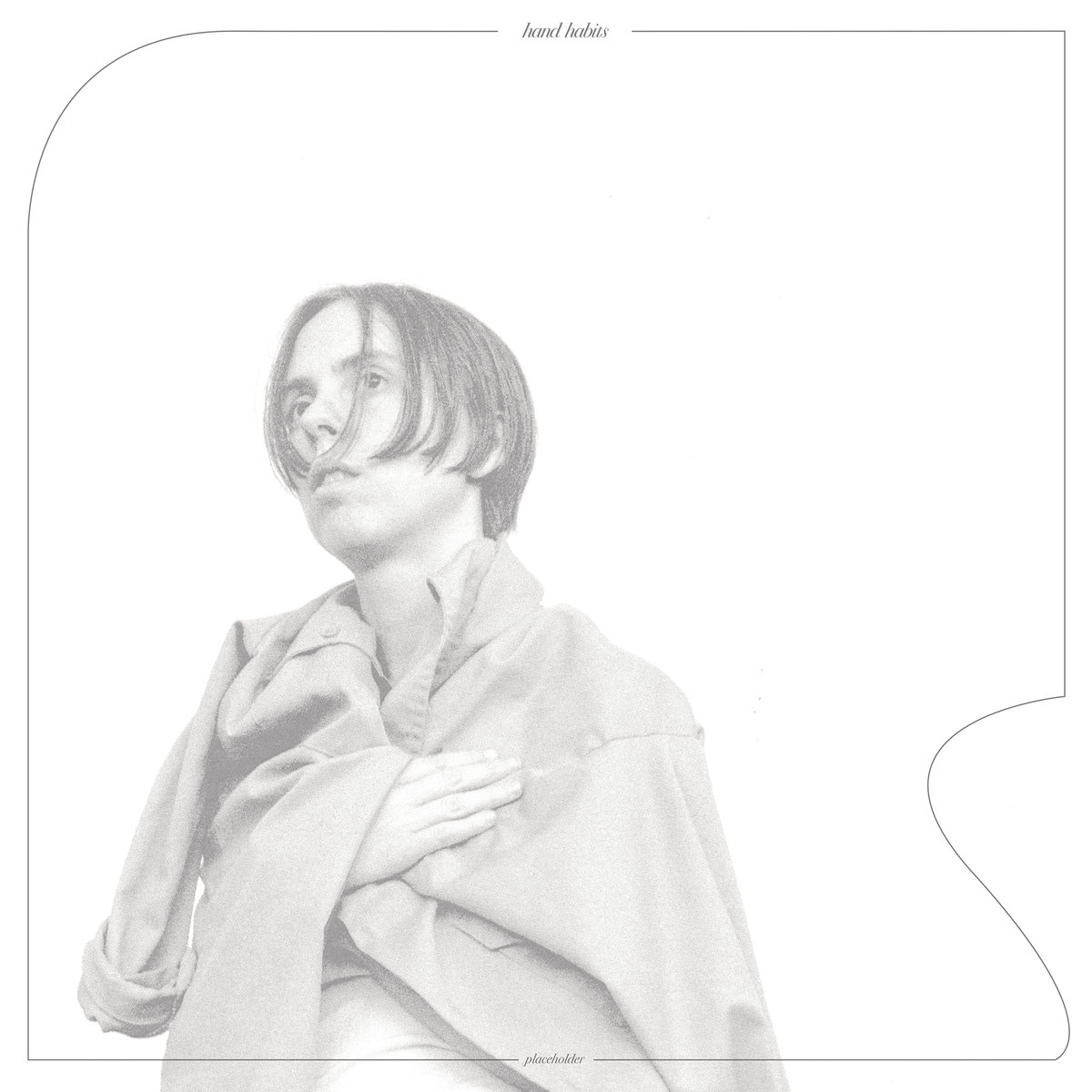placeholder, the title of the new album by Hand Habits, may at first scan as a wry joke, à la the Breeders’ Title TK: We couldn’t come up with a name, so we just left the placeholder in. But the song “placeholder,” which opens the album, suggests otherwise. “I was just a placeholder, a place and nothing more,” songwriter-guitarist Meg Duffy sings, the melody descending like a leaf from a tree. “I was just a placeholder, with nothing to stand for.” Looking back on a past relationship, the song invests real significance in the fate of the placeholder. It is a presence that signifies an absence, referring to nothing in particular, not even the abstracted meaning of symbolism. Maybe later, someone will fill the placeholder up—with a memory, a vague feeling, an argument about what it means to be in love—or maybe it will sit forever, empty.
Rather than wallow in this state of non-being, “placeholder” imbues it with dignity. The music is stately and nocturnal guitar pop, arranged precisely and played with quiet conviction, as sure of its purpose as the song’s narrator seems unsure of theirs. Duffy, who uses gender-neutral pronouns, has said that the songs of placeholder “are all real stories” about people in their life. The album is filled with moments of placeholder-ness, when certainty and identity dissolve. If someone else is imposing this ambiguity on you, as in the case of the title track, which finds Duffy addressing a friend or partner who refuses to see them as they are, it can be alienating and belittling. But when it comes from within, it can open up the world. A placeholder may stand for nothing; it may also stand for anything at all.
placeholder is Duffy’s second Hand Habits album, after 2017’s Wildly Idle (Humble Before the Void), a debut of sprawling yet intimate songs recorded solo, in the midst of a move from upstate New York to Los Angeles. For the follow-up, they recruited a group of backing musicians, and the result is more focused than its predecessor, sharpening the songs’ structures while maintaining a dreamlike blur at the edges. Duffy’s piercing personal imagery and the understated punch of their ensemble recall Big Thief; their singing voice, newly emboldened since the home recordings of Wildly Idle, carries occasional shades of Angel Olsen.
“I let you see the part of me / They call it understanding / They call it vulnerability,” Duffy sings in “yr heart [reprise],” a rerecording of a 2017 single. That so-called vulnerability provides one pathway into these songs. You can imagine spending months or years listening, transmuting Duffy’s personal narratives until they begin to feel like commentaries on your own life. The easiest of these lines to universalize are often the most disarmingly forthright. “When I get to thinking, I start worrying that you don’t know me anymore,” Duffy sings to open “jessica.” There’s that feeling again, of not being known, this time delivered with the everyday tragedy of a great country ballad. Other images are strange and elliptical, steering the songs clear of anything resembling lovelorn cliché. A falling star sets a backyard aflame in “yr heart,” and the song’s chorus moves from expressions of simple devotion—“I will not harm you, I will not alarm you”—to more complicated feelings that sometimes lurk beneath. “I will not delay you,” Duffy continues. And then, “I want to obey you.”
Duffy’s guitar offers another avenue into placeholder. In addition to Hand Habits, they can be heard in the psych-pop outfit Mega Bog, in songwriter Kevin Morby’s band, and going toe-to-toe with instrumental Americana virtuoso William Tyler and jazz guitar icon Bill Frisell on Tyler’s latest album Goes West. placeholder is no shredfest, but it does showcase Duffy’s remarkably fluid playing, whether they’re ripping traditional leads or swirling into the aqueous textures of the production. “pacify” most closely resembles the patchwork nature Wildly Idle, with long arcing slide guitar melodies placed between stretches of solemn acoustic fingerpicking, deliberately showing the seams. “placeholder” and “can’t calm down” each feature scorching electric lines that would make Neil Young proud, submerged in reverb or beneath backing vocals rather than brought to the front of the mix, so that the effect is more like a figment of the imagination or an extension of the narrator’s subconscious than an instrumental showcase. In these moments, placeholder is akin to recent albums by Steve Gunn and Ryley Walker, guitarist’s guitarists who don’t mind backgrounding their skills if it serves the atmosphere they’re trying to create as songwriters and arrangers. placeholder’s most climactic instrumental break, on the album-closing “the book on how to change part ii,” is not a guitar solo at all, but a blissful explosion of saxophones, with Duffy comping gracefully alongside them.
placeholder brims with inventive combinations of sounds like that one, unified by Duffy’s undeniable songcraft and producer Brad Cook’s tastefully restrained touch. The only track that doesn’t quite gel is “heat,” a minute-long barrage of drum machine beats, ping-ponging percussive pitches, and uncanny sliced-up vocals that arrives halfway through the album, sounding more like a lost track from Silent Shout or the Come to Daddy EP than anything that comes before or after. “heat” is difficult to make sense of in context, but it’s too sophisticated to be written off as an indulgence: It really does sound like the Knife or Aphex Twin, not just some guitarist’s pale attempt to imitate them. True to its title, placeholder points the way to a multitude of possible identities, and “laptop-wielding IDM technician” is by far the most surprising among them. If “heat” briefly interrupts the flow of the album, it also gives a glimpse at the expanse of Duffy’s capabilities as an artist.





